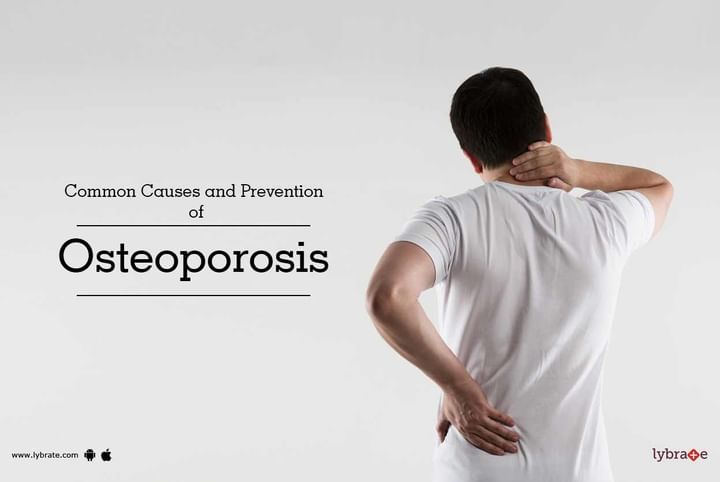Common Causes and Prevention of Osteoporosis
What is osteoporosis?
Osteoporosis is a disease concerning the bones. Decreased strength of the bones poses a risk for them to break. Osteoporosis is very common among older people, whose bones become brittle with age. The most common bones affected by this disease include the backbone, forearm bones and the hip bone. There are no such symptoms until a broken bone occurs. The bones weaken to such an extent that a break may happen in case of very minor stress. Usually, a broken bone is followed by chronic pain and the disability to perform daily activities. Surveys show that 15% of white people in their 50s and 70% of white people in their 80s are affected by osteoporosis.
What are the common causes and symptoms of osteoporosis?
- May occur due to the lowering of the 'peak bone mass index'.
- In women, bone loss increases after menopause stage due to lowering down of estrogen level.
- Also occurs because of another disease or previous treatments. This includes alcoholism, surgical ovary removal, hyperthyroidism, anorexia or any form of kidney disorder.
- Anti-seizure medicines, chemotherapy, selective serotonin reuptake inhibitors and taking of performance-enhancing drugs like steroid increase the bone loss rate.
- Lack of regular exercise may lead to osteoporosis.
- Osteoporosis is defined as a 'bone density of 2.5 standard deviations below than that of a young adult'.
- Osteoporosis is hereditary in nature. People having a family history of osteoporosis are at a high risk of getting the disease.
- More than thirty genes are linked with osteoporosis development.
- If you have had a fracture before, you are at a risk of a repeat.
- Early menopause in women is also responsible for osteoporosis.
- People with a small structure and body build are at a risk of getting osteoporosis.
- Protein and vitamin deficiency makes your bones weak and makes you vulnerable to osteoporosis.
- Phosphoric acid present in soft drinks is another threat, which may cause the disease.
- People suffering from malnutrition are likely to get osteoporosis.
- Over replacement of L-Thyroxine may lead to osteoporosis.
- Use of heparin and warfarin for a long time decreases the bone density.
How can Osteoporosis be prevented?
The best way to avoid getting osteoporosis in the future is to maintain a preventive lifestyle.
- Exercise regularly
- Indulge in natural calcium sources
- Maintain intake of vitamin D and K
- Do not smoke and consume alcohol
- Don't undertake stressful physical activities
- Go for regular health checkups
- Stay fit and stay away from obesity
Osteoporosis is a disease you must stay away from. It leaves you physically incapable and unfit.



+1.svg)
